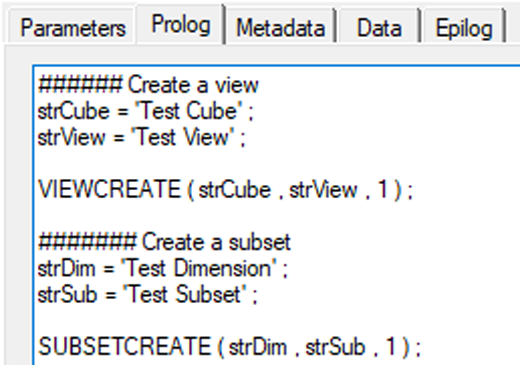Did you know you can create a temporary VIEW or SUBSET Turbo Integrator function in IBM Planning Analytics? Here’s why you may need to, and how to do so.
IBM has gone to great lengths to ensure that the transition to Planning Analytics is a seamless process and has added some new functionality to help make your system more efficient.
Two commonly used TurboIntegrator (TI) functions are SUBSETCREATE and VIEWCREATE. These processes are used to create a new component in your process, but they sometimes can cause an issue. If you create a new subset or view in the prolog but then have the process fail with the DATA tab then the process will end without removing the new components. This is most likely because VIEWDESTROY and SUBSETDESTROY are most likely within the Epilog.
There are ways to code around this in the existing version of TM1, but Planning Analytics now offers the ability to create a temporary VIEW or SUBSET as of version 10.2.2 FP4. This is done by adding a flag at the end of the command.
So now, the coding for the two CREATE commands can look like this:

The “1” at the end of each of these is an optional flag. By using this approach, the previously mentioned error is a problem of the past.
IBM Planning Analytics is full of new features and functionality. Not sure where to start? Our team here at Revelwood can help. Contact us for more information at info@revelwood.com. And stay tuned for more Planning Analytics Tips & Tricks weekly in our Knowledge Center and in upcoming newsletters!
Read more blog posts on IBM Planning Analytics:
IBM Planning Analytics Tips & Tricks: Using the Full Power of MDX
IBM Planning Analytics Tips & Tricks: Creating URLs for TM1 Websheets
IBM Planning Analytics Tips & Tricks: Creating TM1 Picklist Cubes
